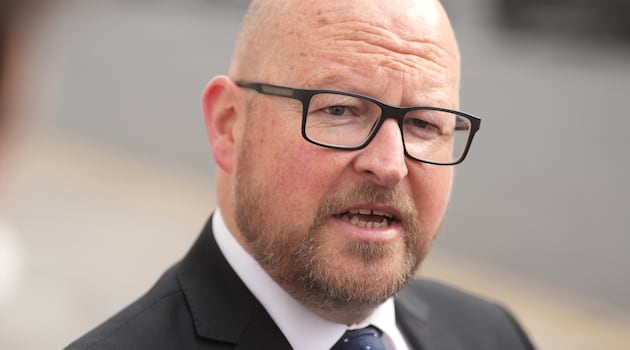
Ireland’s trade unions have accused the Government of using economic uncertainty created by the Trump administration in the United States to take “a wrecking ball to recent wins on workers’ rights”.
After a meeting of its executive on Wednesday, the Irish Congress of Trade Unions (Ictu), to which more than 40 unions are affiliated, described as “anti-worker” the Action Plan of Competitiveness announced this week by Minister for Enterprise, Tourism and Employment, Peter Burke.
It said the Government was right to be conscious of the shifting economic environment but said Ireland was at present ranked as “the most competitive country in the Eurozone”.
“The row-backs on the living wage, paid sick leave, abolishing sub-minimum youth rates, minimum pay rates for employment permits and pension auto-enrolment have nothing to do with hard evidence,” said Ictu general secretary Owen Reidy.
This was “crystal clear” from the findings of a Government-commissioned study of the impact of increased sick pay entitlements published this week, which found most companies reported no significant effects.
[ Q&A: How will the Government’s new plan to support businesses affect workers?Opens in new window ]
“The writing was on the wall since last summer that Government had lost its appetite for delivering on their pandemic-dividend promises to the army of low paid, essential workers who kept our country running during some of its darkest days five short years ago. The economic uncertainty around Trump’s tariffs has provided the cover to break their promises.”
The action plan, Mr Reidy said, was “a ruse” to justify reneging on previous commitments.
“It is solely the result of Government cowing to intense lobbying from business representatives, which leave the lowest-paid, sick, young, migrant, and retiring workers to carry the cost of buying employers’ silence.”
On Tuesday, Mr Burke denied the range of measures he was supporting to help businesses were “anti-worker”.
“Absolutely not,” he said, pointing to previous measures that increased the minimum wage, protected tips and banned zero-hours contracts.
In the case of the National Minimum Wage he said rates had increased by 29 per cent since 2022, although the unions say the rate of growth had been far slower in the years before that.
Mr Burke said the latest delay to auto-enrolment was a matter of preparedness rather than a deliberate move to defer the imposition of contributions involved. He said the scheme’s new start date would not be significantly beyond the previously scheduled September 30th.











